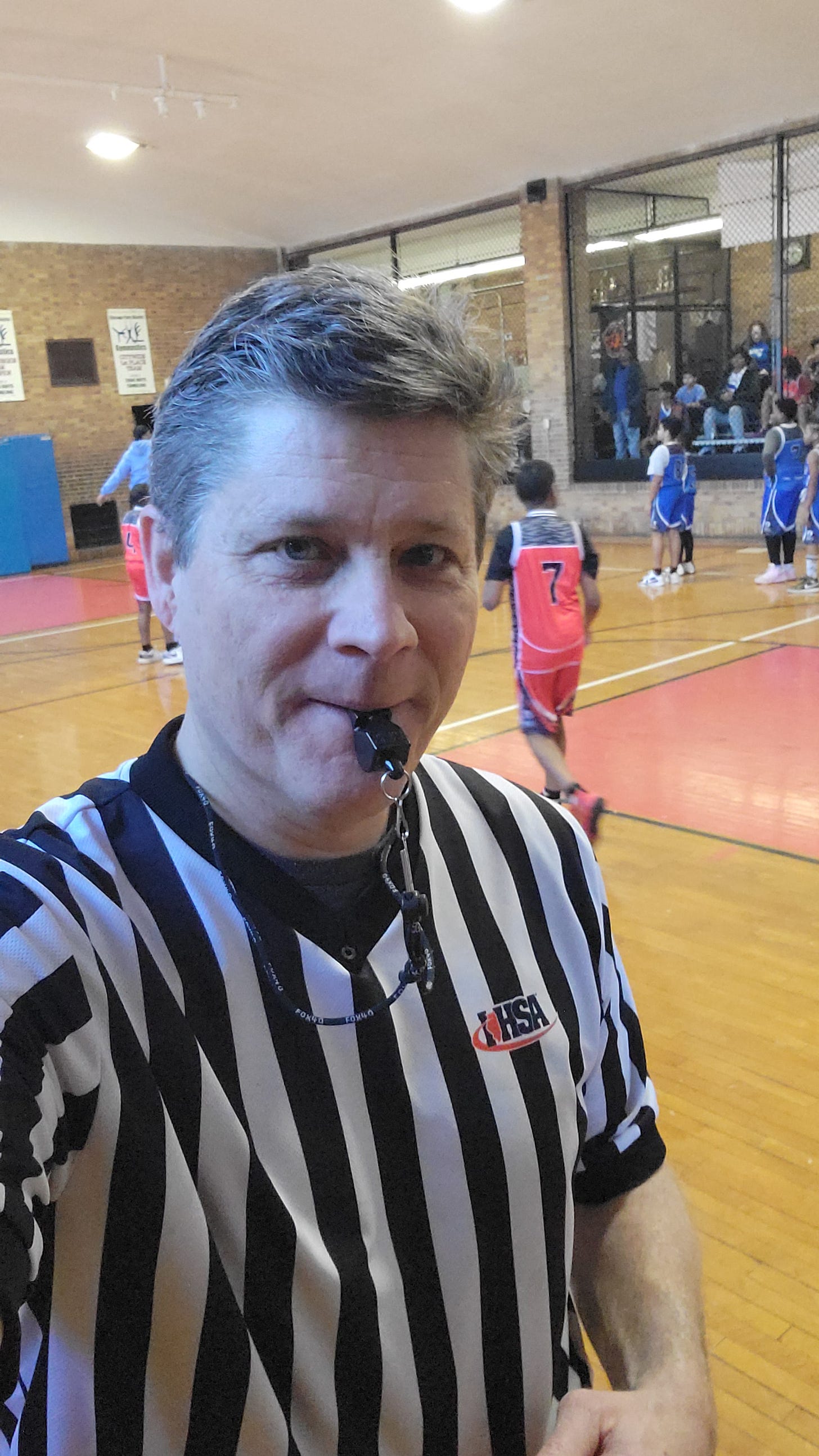Game over
As a basketball referee, my approach is colored by my playing, coaching and rooting histories. Today marked a new, sobering milestone.
Today I officiated three youth basketball games on Chicago’s far West Side—the first one went into overtime, the second lasted the customary four quarters and the final one ended abruptly.
Late in the third quarter, my officiating partner and I made the decision: “We’re calling it. This game’s over.”
Across a few hundred contests that I’ve refereed—a bunch in the mid-1980s when I was a high schooler and many more over the past eight years, this was a first.
So was the benches-clearing confrontation that led to it. First a pair of opposing players got aggressively into each other’s face. Someone else got involved, then another, and within a few seconds the contagion had spread to pretty much everyone on the court, then to their teammates on the sidelines.
No punches were thrown. Coaches joined me and my partner in separating and restraining the 13- and 14-year-olds. One youngster, nowhere near my size, impressed me with his resistance to my 6-foot-1, 210-pound bear hug—if basketball doesn’t work out for him, he could become a standout wrestler.
Waving off the final 10 minutes of basketball isn’t anyone’s idea of a good ending. Still, my part in those closing, chaotic moments is what draws me to the referee role: the opportunity to bring my life and basketball experience to render sound, fair decisions.
The right thing was calling it a day—with tempers now raised, an escalation of the conflict felt likely. It was time to let everyone cool off.
For any sport, one sign of an effective game official is that you don’t really notice them. They’re not perfect, but their decision-making is so solid and authoritative that the contest flows smoothly around them. That’s my goal each time I toss up the ball at midcourt for the opening tip-off.
There’s an extra challenge with reffing younger kids who are relatively new to the game. For example, where do you draw the line on traveling calls? It’s an art form, and can quickly get messy when, as invariably happens, you cannot maintain perfect consistency of how much leeway to give an 8-year-old who is only vaguely familiar with the notion of dribbling the ball.
Within 30 seconds of any game’s start, someone in the stands, on the sidelines or on the court has usually called out what they regard as my sin of omission (you missed that one!) or commission (why did you call that?).
That’s why for any ref to last, it’s imperative to put on more than the black-and-white “zebra” uniform and drape the Fox 40 whistle around your neck. Also essential is an extremely thick skin. For me, that includes remembering the other roles I’ve had over nearly 50 years in basketball.
Rather than be offended by the kid who’s contorting his face and lifting his arms in disbelief at my supposed incompetence—mimicking the antics of their role model professional athletes—I choose amusement. I also know that I didn’t always meekly agree when calls didn’t go my way as a player.
Instead of getting defensive over a coach’s alternate perspective, I think back to my own years of coaching my children’s teams—and the hundreds of critiques that I generously shared with refs.
Oh, and that parent bellyaching? From my perfect perch in the stands, I have been way louder.
As for today’s final call to end the game early, there was at least one silver lining: Nobody disputed it.



As an umpire for 25-plus years (and occasional basketball referee), you made the perfect call. When making the traveling call in youth sports, consistency should (most of the time) keep most of the loud-mouth spectators quiet for a while. The athleticism in the NBA is superb but, like Dan P. said, the traveling makes most games unwatchable.
You wanna take on NFL games as ref? I'd watch just to see you....